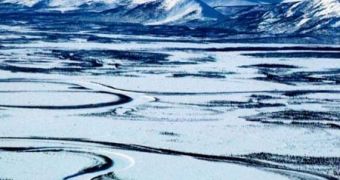It's no big secret that mercury is a highly toxic element. Although it is true that mercury is naturally found in the environment, it seems that human activities have led to an alarming increase in the amounts of mercury present in the natural world.
What makes mercury so dangerous is the fact that it doesn't break down into less harmful components, no matter how much time passes. On the contrary, mercury constantly accumulates in the environment.
As well as this, mercury can easily make its way through the food chain, which means that it is quite possible for humans to ingest it without even knowing it.
Given these characteristics of mercury, it's no wonder that researchers felt the need to sound the alarm when they discovered that the blood of the mammals living in the Arctic region has some of the highest concentrations of mercury in the world.
Coal combustion is one of the leading causes of mercury's being released into our environment, reports Enn.
During the process of combustion, mercury is released into the atmosphere. As the water circuit in nature does its job, mercury ends up falling back on the ground either by means of rain, or by means of snow.
It then goes into our rivers, and from there on into our oceans. Since the far north typically experiences heavy rains, it's only natural that most of the mercury now running free in our natural world is to be found in the Arctic area.
As well as this, the Lena, the Ob and the Yenisei, three of the largest rivers in the world, flow straight into the Arctic Ocean, thus playing their part in increasing the concentration of mercury in this region.
Although at the present moment researchers are mainly worried about the people living in the Arctic area, as they are the ones directly exposed to these dangerously high levels of mercury, there is no telling when this status quo takes its toll on the people who carry on with their living in other parts of the globe.

 14 DAY TRIAL //
14 DAY TRIAL //